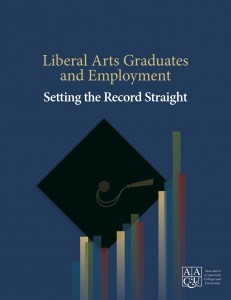Kelsey Mullane, a University of Wisconsin-Madison junior, writes in today’s Milwaukee Journal Sentinel that recent remarks by President Barack Obama and Senator Marco Rubio on the economic value of a humanities degree are evidence of the decay of the humanities:
Today, students are choosing to pursue degrees in STEM (science, technology, engineering and math) subjects rather than humanities degrees such as art history, history or philosophy. There are many possible explanations for the decline in students pursuing humanities degrees. However, I believe that the decline is occurring because undergraduate students possess a distorted perception of degree value that deems the humanities as economically inferior to STEM programs.
This perception of degree value is the product of increased criticism of the humanities following the economic recession. This criticism uses numeric data, such as starting salaries and post-graduation unemployment rates, to support the erroneous notion that the humanities teach impractical skills that hold little or no value in the current job market, thereby discouraging their study.
Mullane maintains that both STEM and humanities degrees offer economic value in today’s marketplace.

